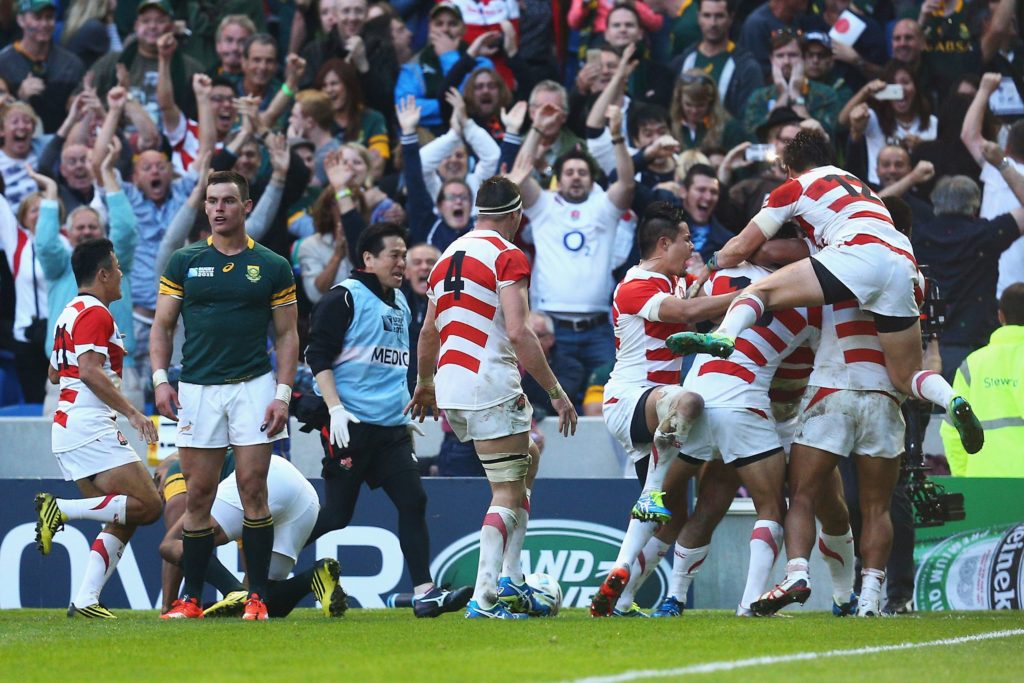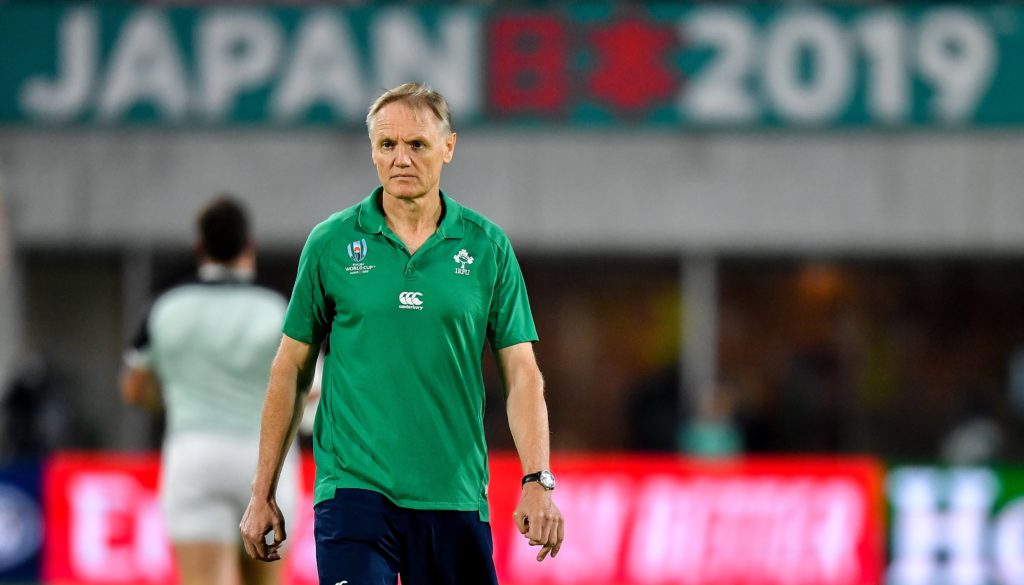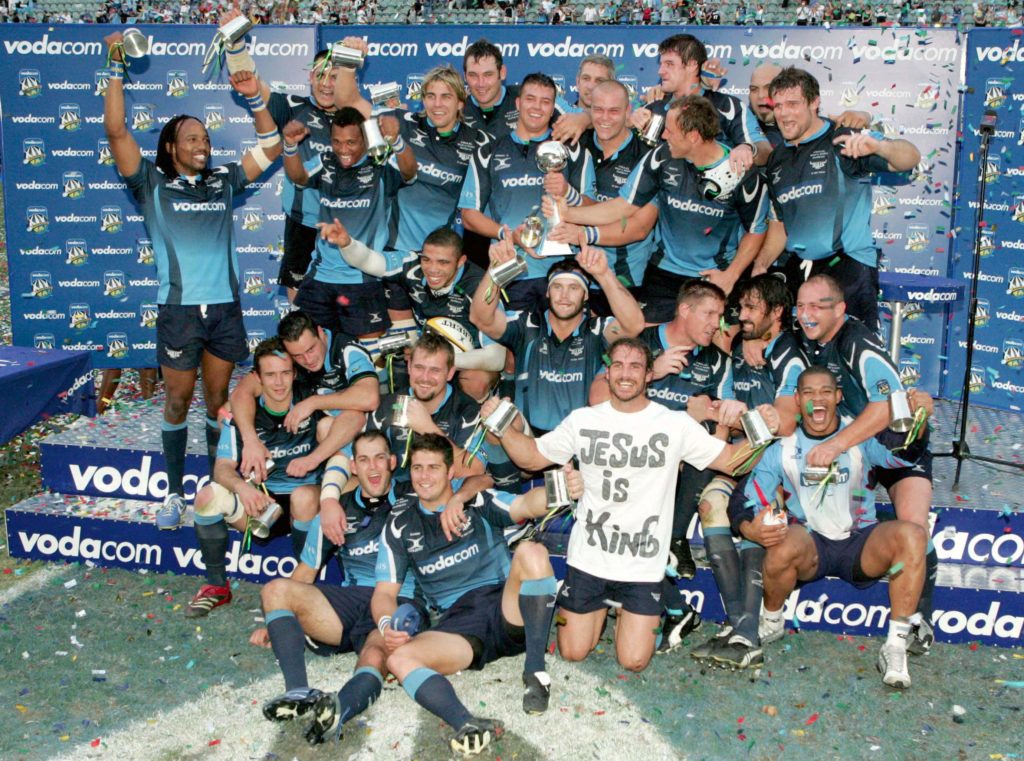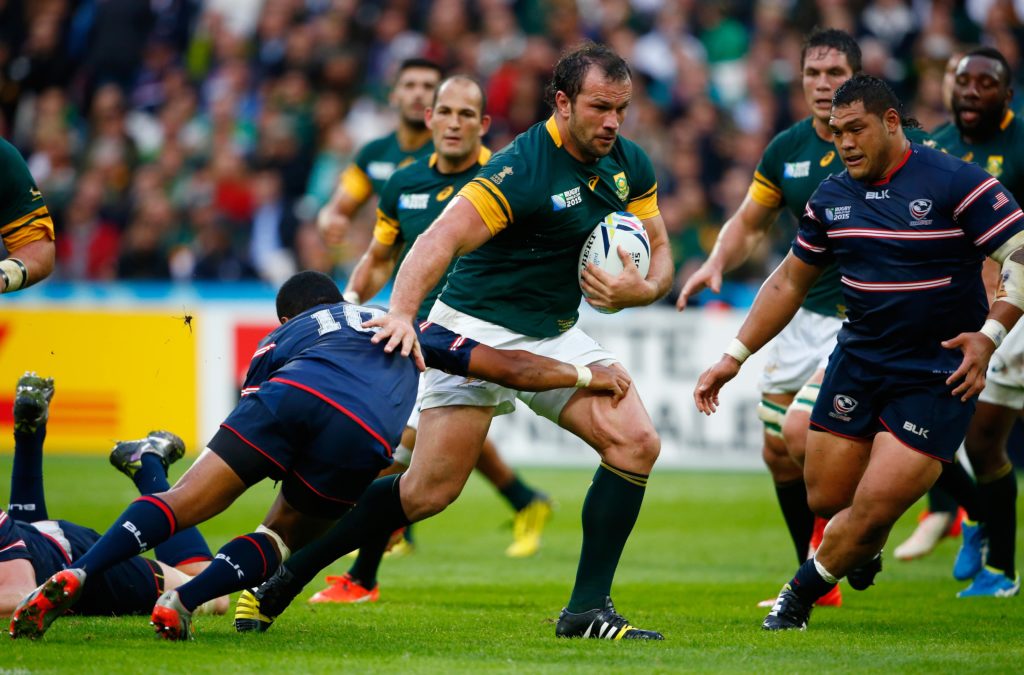Heyneke Meyer will never get over the Springboks’ loss to Japan at the 2015 World Cup. Indeed, when the former South African coach talks about the ‘Brighton Miracle’, it’s as if he’s confiding in a support group for former tier-one coaches who have come unstuck against the Brave Blossoms.
“I’m the coach that lost to Japan,” Meyer says, as if he’s introducing himself, as if that result is a part of him. While Joe Schmidt and Gregor Townsend joined the list at the 2019 World Cup, and Japan proved that they deserve universal respect, recent events cannot erase what transpired in Brighton five years ago.
Meyer learned a great deal from the experience. He understands, though, why his tenure as national coach will forever be marred by South Africa’s most embarrassing defeat.
“There’s no getting away from that,” he says.
Meyer has just released a book entitled ‘7 – My Notes on Leadership and Life’. He confirms that it’s not a tell-all autobiography but rather a look at the lessons he’s learned on a coaching journey that spans nearly three decades.

In his marrow, in his bones, Meyer believes there are seven principles of leadership that can help individuals, teams and businesses unlock their potential. Former All Blacks coach Steve Hansen has written the foreword.
“I wasn’t interested in writing a book that set out to nail people,” Meyer reiterates. He goes on to admit that South African rugby has had its problems over the years – an understatement when one considers how the national team struggled in 2016 and 2017, and ultimately slumped to seventh in the World Rugby rankings.
Rassie Erasmus returned to South Africa in 2018, and engineered a turnaround which culminated in the Springboks winning the 2019 World Cup. The success of the national team, however, is in spite of the system in South Africa, which tends to favour the unions and franchises rather than the Boks.
“I want to be part of the solution,” Meyer says. “I have to take responsibility and own up to things that were my fault. My life story is not going to help anyone. The lessons I’ve learned in rugby just might, though. That’s why I got into coaching in the first place: to help people.”
I want to be part of the solution. I have to take responsibility and own up to things that were my fault.
Meyer revisits the scene that followed South Africa’s loss to Japan. After the game, Meyer and captain Jean de Villiers shuffled into the press conference with their shoulders slumped. Both struggled to raise their voices above a whisper. Meyer appeared to be on the verge of tears.
“I had never felt lonelier in my life,” he says. “The Springboks meant everything to me… and I felt that I had let my country down.
“It took a lot to get back up from there; to go on to come within three points of beating the All Blacks in the semi-finals. I have to credit the players for their response.”
Since then, Meyer has taken a step back to assess the bigger picture.
“I’ve seen other coaches going through similar challenges. When Ireland lost to Japan last year, I called Joe Schmidt and told him that I knew how he felt.
“Japan were better than most people gave them credit for in 2015. They’ve gone from strength to strength since. We saw that at the 2019 World Cup.

“That said, proud nations like South Africa and Ireland aren’t going to accept it when their teams lose those types of matches. In many ways I’ve moved on, but I don’t think I will ever fully get over it.”
Meyer cut an emotional figure in the coach’s box throughout that 2015 World Cup campaign. He leaped from his seat and punched the air in celebration when the Boks edged Wales in the quarter-final. After the defeat to the All Blacks, he failed to hide his disappointment.
Meyer remembers how Hansen – his direct opponent in that match – encouraged him to see the result in perspective.
“Steve is one of my good friends. After the 2015 World Cup, I was really down. We came within three points of beating the All Blacks. We came third. But in South Africa, nothing but winning the World Cup is good enough.
“I believed that too. That’s why I was always so emotional. Steve came to me and told me that you don’t always win on the scoreboard. There are other ways to win respect from your peers and your opponents.”
After the 2015 World Cup, I was really down. We came within three points of beating the All Blacks. We came third. But in South Africa, nothing but winning the World Cup is good enough.
Last year, Meyer saw an opportunity to return the favour after the All Blacks’ World Cup campaign ended prematurely.
“I sent Steve a text message after the All Blacks lost to England. South Africa and New Zealand are very similar in that rugby is very important. When the team doesn’t win, it’s like a national disaster.
“All coaches go through that at some point, though. It doesn’t mean they don’t have what it takes.
“A lot of people focus on that one result, but consider my career in its entirety. I’ve had some success with the Bulls at Currie Cup [four titles] and Super Rugby level [South Africa’s inaugural title win in 2007]. The Boks won 83% of their games in 2013, and went through two tours to Europe unbeaten [2012 and 2013].
“Steve’s record speaks for itself. He coached the greatest team of all time. Joe Schmidt is another great coach, and unfortunately it just didn’t work out for him at the last two World Cups.”

Meyer reiterates how the pressure of coaching in a big Test – and particularly the pressure of coaching at a tournament like the World Cup – can cause some to second-guess themselves.
“I worked as an assistant under Nick Mallett when he was Bok coach in the late 1990s. He taught me a lot. The difference between coaching a local union and the national team is huge.
“The pressure at the top is incredible. It all comes down to the decisions you make, the players you pick. You take that responsibility. One thing he told me was to trust my gut. Maybe I didn’t do that enough when I was coach.
“In South Africa, coaching the team is actually the easy part of the job,” Meyer adds, referring to the state of the administration and system that serves the franchises rather than the national team.
“The pressure at the top is incredible. It all comes down to the decisions you make, the players you pick. You take that responsibility. One thing he told me was to trust my gut. Maybe I didn’t do that enough when I was coach.
“There are a lot of other things that you need to get right off the field, and credit to Rassie for doing that now with the team. The margins are so small at the highest level, so you need everybody across the organisation, and even at the franchises, pulling in the same direction.
“What the Boks have now, after winning the World Cup, is the ideal situation where so many of the coaches and management members are still employed. Continuity is so important to sustained success.”
Meyer admits that he would do things differently if he had his time over. His four-year tenure flew by quickly and he regrets not making more of the big victories.
“Bismarck du Plessis came to me one day and said, ‘Coach, you have to enjoy this more.’ Because he could see that it was life and death for me. I was just so emotional. I took the losses hard, but perhaps I didn’t savour the victories enough. I just moved on to the next game. If I had my time again, I would definitely try to soak it all in.”

That said, he has many good memories and remains proud of his achievements at club and national level.
“One thing that grated me was how I was always accused of coaching teams to play boring rugby. How many records did the Bulls break over the years? They did something special in 2007, when they beat Eddie Jones’ Reds 92-3 to qualify for the playoffs.
“The Boks put 73 points past Argentina in the Rugby Championship game at Soccer City in 2013. Later that year, we adjusted our game plan ahead of the Test against the All Blacks at Ellis Park because we needed a bonus-point win to claim the title. We fell short in the end, but I remember referee Nigel Owens coming up to me afterwards to say it was some of the best rugby he’d ever seen.
“I will always remember the good people I worked alongside. You build special relationships with these guys. I say that I get emotional about the result, but the players meant a great deal to me.
One of my highlights as a coach was not a title, but a moment where [Bulls lock] Bakkies Botha gave me his Springbok jersey in 2007. Ahead of the World Cup in France, Jake White asked the players to invite the people who’d had the biggest impact on their lives to a special gathering. I was touched that Bakkies, who I coached at the Bulls, decided to invite me and to give me his jersey.”
Time has provided Meyer with the opportunity to reflect on a couple of missed opportunities. On the back of his success at the Bulls in 2007 – Meyer put structures in place that set the platform for two more Super Rugby titles in 2009 and 2010 – he travelled to England to join the Leicester Tigers. At that stage, Meyer was determined to implement similar systems at Leicester and to build another dynasty.
One thing that grated me was how I was always accused of coaching teams to play boring rugby. How many records did the Bulls break over the years? They did something special in 2007, when they beat Eddie Jones’ Reds 92-3 to qualify for the playoffs
“Unfortunately, I had to cut the stint short and fly back to South Africa,” he says. “Both of my in-laws were very ill, and both eventually passed away later that year. It was important to be with my family at that time. I was glad that Leicester went on to win the English Premiership title that season, though.
“I saw the Stade Francais job as that kind of opportunity,” he says of his most recent gig as a head coach. Meyer joined Stade in 2018 when the Parisian club was languishing at 12th in the Top 14 standings. They improved over the next few months and narrowly missed out on a playoff place.
“I wanted to build them into a superpower,” he says. “In the end, myself and others at the club had differing views about where the team should go.”
Meyer is exploring a few business opportunities while he contemplates his next big rugby move. While he confirms that several clubs have expressed an interest in acquiring his services, he will only take a job for the right reasons.
“I would love to be the director of rugby at a big club again. Mostly, I’d love the chance to build and work with young players. I’d even enjoy the opportunity to work with young coaches. There’s not enough focus on developing coaches in South Africa or using older guys like myself to help.
“I see that Jake White is coaching the Bulls and Peter de Villiers is set to return to the South African system. That’s great. Too often we see Bok coaches leaving the country at the end of their tenure and not returning. It’s a shame. We have to make use of that experience.
“Rugby is in my blood,” he adds. “I’ve uttered the words ‘never again’ but if the right coaching opportunity came along, I would think about it.
“Ultimately I’d take a job for the same reason I did at the start of my career: I want to make a difference.”
More from Jon Cardinelli
If you’ve enjoyed this article, please share it with friends or on social media. We rely solely on new subscribers to fund high-quality journalism and appreciate you sharing this so we can continue to grow, produce more quality content and support our writers.



Comments
Join free and tell us what you really think!
Sign up for free